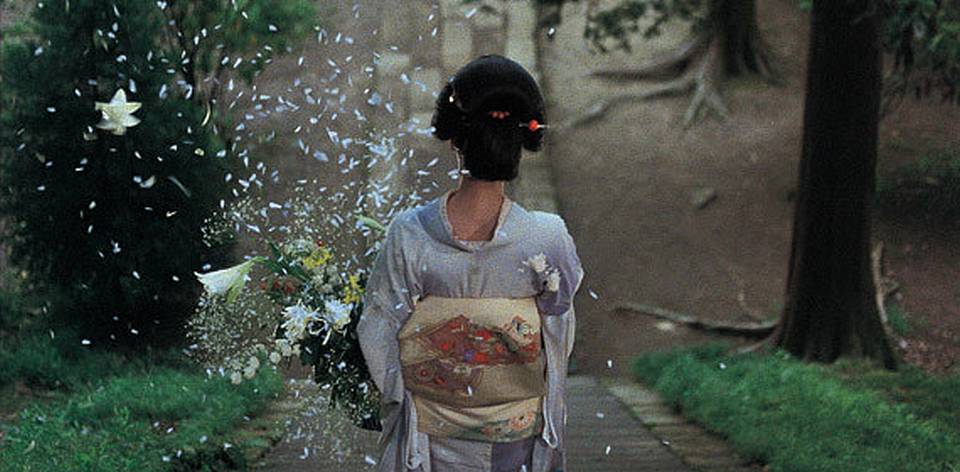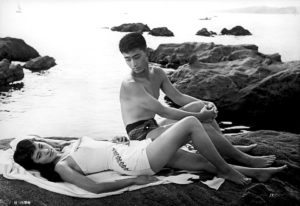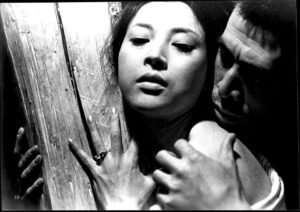Those who do not learn from cinema history are condemned to repeat it. Yet when the retro selections are as good as the newly announced Japanese Film Festival Classics Program, it’s a sentence we’d happily commit to. One of our favourite festivals will present a curated program, Passion & Obsession, running between 29 September and 2 December in Sydney with an abridged version in Melbourne and Canberra.
The eight films span the 1930s through to the 1980s, with masters such as Kenji Mizoguchi, Shôhei Imamura, Seijun Suzuki, and Kon Ichikawa populating the impressive collection of Japanese cinema. Leading the pack is Imamura’s THE PORNOGRAPHERS (1966), a Cannes Palme d’Or-winning film about the titular pornographer (played by Shōichi Ozawa) who tries to keep his business alive under the thumb of the cops and the mob.
Kenji Mizoguchi, master of films about “fallen women,” released A GEISHA in 1953, tackling multiple social issues in Japan by focusing on an aspiring geisha and her established mentor fighting to uphold their dignity amidst the economic pressures of post-war Kyoto. Following the theme, Ichikawa’s first colour film NIHONBASHI (1956) follows two rival geishas in the cutthroat area around the infamous Tokyo bridge.
Still in 1956, JUVENILE JUNGLE (CRAZED FRUIT), director Kō Nakahira (as Yasushi Nakahira) released this Sun Tribe film, adapting the novel of the same name by novelist-turned-politician Shintaro Ishihara. Tapping into youth culture of the time, it follows two men who fall for the same woman. It’s sure to end well for everyone.
Skipping ahead a decade, Yasuzo Masumura’s MANJI: THE GODDESS OF MERCY (1964) is a rare bit of queer cinema where two affluent society ladies, Sonoko and Mitsuko, begin a friendship that turns into a love affair.
Those who enjoyed the Seijun Suzuki retrospective at the JFF in 2017 will be pleased to see the addition of his later work in KAGERO-ZA (aka HEAT HAZE THEATRE, 1981), a multi-award-winning adaptation of Kyoka Izumi’s Gothic-tinged ghost story follows a playwright who meets a beautiful woman he suspects is the ghost of his patron’s deceased wife.
The earliest of the films is Yasujirō Shimazu’s OKOTO AND SASUKE (1935), following prolific Japanese Golden Age Kinuyo Tanaka star as a blind musician and her devoted manservant.
Last but not least is prolific actress Mariko Okada (Akitsu Springs), who stars in her husband Yoshishige Yoshida’s THE AFFAIR. It’s a Japanese New Wave depiction of female characters defining their own sexuality, about a young woman’s illicit affair with her deceased mother’s lover.
The Japanese film festival has really expanded over the last 12 months, taking the main program in November/December each year, and spinning it out to satellite programs throughout the year such as JFF Fringe. The classics program has long been a part of the main festival, but this dedicated program speaks to the growing number of audiences wanting to explore the rich history of Japan’s cinematic delights.
The best thing about this program? It’s complete free in all cities it’s showing. Check out the JFF’s website for ticketing details.
Love Japanese cinema? Follow out regular coverage of the films of Japan as part of the Asia in Focus stream at The Reel Bits.






